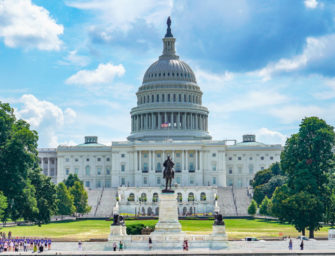Science Fares ‘OK’ in FY17 Omnibus; FY18 Remains Uncertain
As you may have heard, Congress recently passed a bipartisan omnibus spending bill (H.R. 244) to fund the federal government for the remainder of fiscal year 2017, which ends on 30 September 2017. Overall the bill provides relatively flat funding for the NSF, roughly two percent increases for NASA and USGS, and a nearly two percent decrease in funding for NOAA. Some programs saw more extensive increases, for example, NASA’s Planetary Science saw a 13.18% increase in funding, and somewhat surprisingly, NOAA’s Office of Oceanic and Atmospheric Research saw a 6.67% increase. (Read more in-depth coverage of 2017 science funding here.)
While it isn’t clear what these funding levels might mean for science in fiscal year 2018, which begins on 1 October 2017, we remain hopeful. The U.S. has been under-investing in science for some time now, however, this bill provides some certainty and security for the remainder of FY2017. In passing this bill, Congress has indicated they value overall federal science research and the benefits it offers to Americans and citizens around the globe. Investment in science funding pays dividends to the public, businesses, and industries that rely on scientific information and data for economic growth, public health and safety, and national security.
An FY18 bill that acknowledges that federal science agencies work in tandem with one another and that cutting funding or the influence of one line office is cutting all of them, is in all our best interest. The systems that support Earth and space science—including climate, weather and ocean systems— can’t work independently of one another, just as our understanding of these systems can’t. Robust funding of federal science enhances our nation’s ability to protect communities, whether from natural hazards that may impact infrastructure or resource availability, or other potential risks.
Science funding may be secure for now, but we can’t afford to become complacent. I encourage you to speak up and add your voice in support of strong science funding for FY18, and beyond. Visit AGU’s Policy Action Center to write your members of Congress and share AGU’s position statement, “The U.S. Government has a Critical Role in Supporting Basic Research in the Earth and Space Sciences.”
Editor’s Note: AGU continues to watch for the coming 2018 budget proposal from President Trump that would expand upon the White House’s earlier proposed skinny budget, which Chris McEntee commented on in this March post. We expect that will be released in late May, so stay tuned.




There are no comments
Add yours